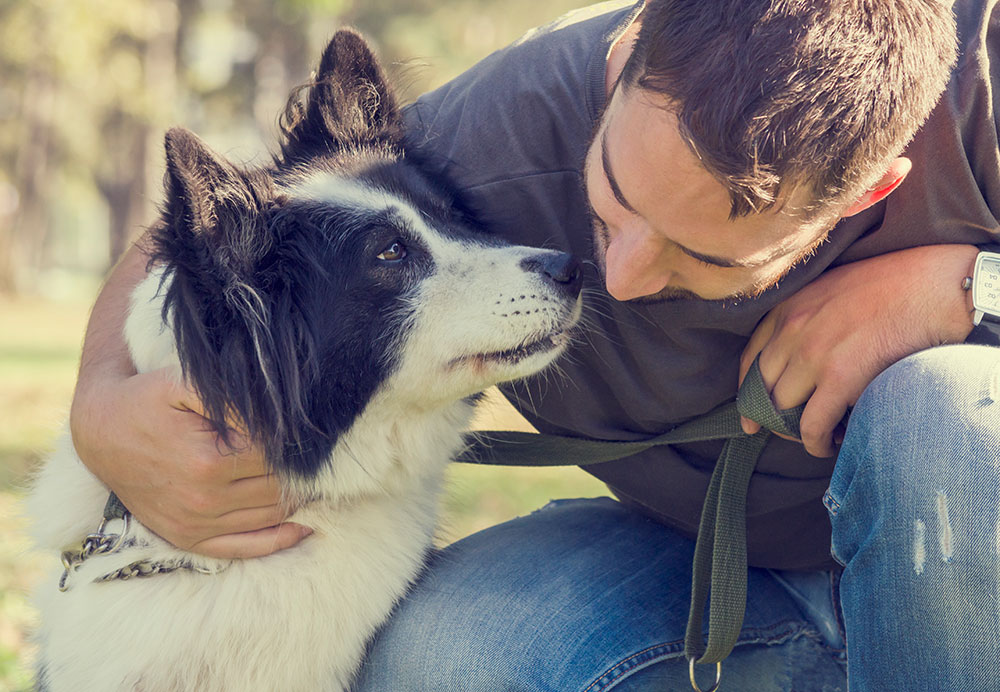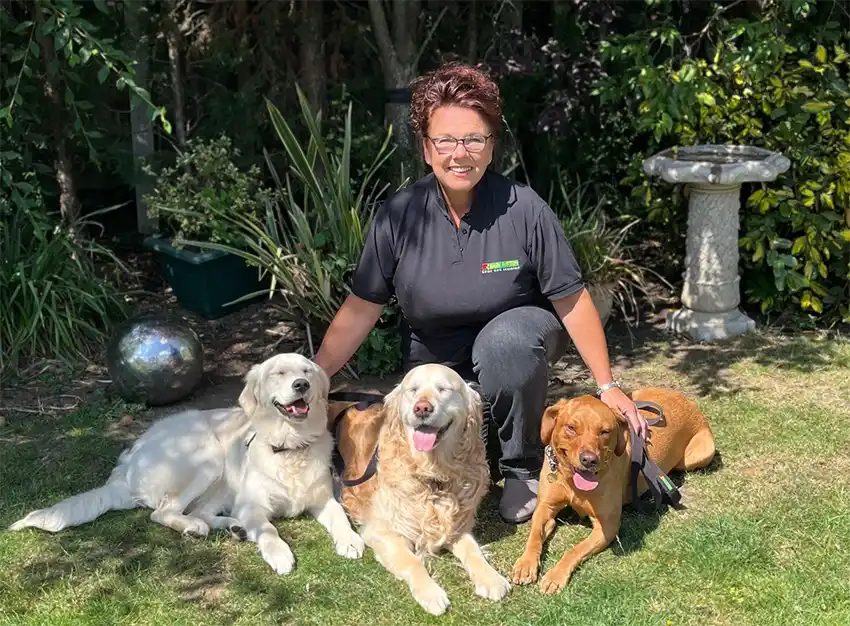The Ultimate Guide to Dog Training for New Pet Parents
The Ultimate Guide to Dog Training for New Pet Parents
Blog Article
The Ultimate Guide to Canine Training: Change Your Pet dog's Habits
Effective pet dog training is crucial for cultivating an unified connection between pets and their owners. This guide not only aims to outfit you with the needed tools to change your dog's behavior yet likewise welcomes you to discover exactly how these foundational principles can lead to a much deeper link with your pet.
Comprehending Pet Dog Actions
Understanding pet dog habits is necessary for efficient training and an unified relationship between pet dogs and their owners. A canine's habits is affected by a mix of genes, setting, and experiences. Dog training. Recognizing these variables allows proprietors to tailor their training approaches to fulfill the private demands of their family pets
Pet dogs interact largely through body language, articulations, and faces. A wagging tail can show excitement or happiness, while a tucked tail might signal anxiety or entry. Observing these signs allows owners to respond appropriately, strengthening favorable actions and addressing unfavorable ones effectively.
Additionally, understanding the social framework of dogs can provide insights into their behavior. Canines are pack animals, and they prosper in an organized environment. Establishing clear limits and constant policies can stop confusion and advertise a sense of safety.
In addition, identifying the all-natural reactions of pets, such as the impulse to dig or chase after, is important. These instincts can be rerouted via suitable outlets, such as play or workout. By comprehensively understanding these behavior aspects, proprietors can cultivate a favorable training experience, eventually bring about a loyal and well-adjusted canine buddy.
Necessary Educating Strategies
Reliable canine training relies upon a variety of crucial methods that can substantially improve the discovering procedure for both the canine and the proprietor. One basic method is favorable support, which includes gratifying desirable habits with treats, appreciation, or play. This method encourages pet dogs to duplicate the behaviors that result in favorable outcomes, promoting a trusting connection in between the pet dog and proprietor.
One more secret technique is uniformity in commands and expectations. Using the same spoken cues and hand signals helps the pet comprehend what is called for, decreasing complication and promoting quicker knowing. In addition, establishing clear boundaries and policies is essential for effective interaction.
Socializing is also an essential component of training. Exposing canines to various settings, individuals, and other pets helps them establish appropriate social abilities and decreases anxiety in strange situations.
Lastly, persistence and timing are crucial. Educating sessions should be brief however constant, making sure that the pet remains involved and receptive. By using these necessary techniques, owners can produce a structured and favorable training experience that advertises good habits and strengthens the bond with their canine friends.
Producing an Educating Set Up
Exactly how can a well-structured training schedule enhance a pet's knowing experience? A training timetable gives consistency, making sure that pets obtain routine, focused instruction. This predictability helps pets recognize what is anticipated of them, enhancing their discovering and permitting for better retention of commands and actions.
When creating a training routine, it is necessary to consider the canine's age, type, and specific personality. Young young puppies may profit from shorter, a lot more frequent sessions, while grown-up pets might thrive with longer, less frequent training periods. Including a variety of her response activities can also maintain the sessions involving, preventing dullness and promoting enthusiasm for discovering.
Additionally, organizing training sessions at particular times of the day can help solidify a regimen. For circumstances, coupling training with everyday walks or playtime can create a favorable association with learning. It is likewise crucial to consist of time for support, such as deals with or praise, to award wanted actions immediately.
Lastly, adaptability is key. While consistency is important, being adaptable to the pet's state of mind or energy degree can improve their understanding experience. A well-crafted find this training schedule inevitably lays the foundation for reliable communication and a stronger bond in between the pet and proprietor.
Common Training Obstacles
Despite having a well-structured training schedule, dog owners commonly experience different difficulties during the training process. One common problem is variance in commands and cues. When numerous member of the family use different terms or tones, a canine might come to be confused, hindering its ability to discover effectively.
One more frequent obstacle is interruption. Dog training. Pet dogs are naturally interested animals, and external stimuli such as other animals, sounds, or people can divert their interest during training sessions. This calls for owners to develop a regulated setting or gradually introduce interruptions to strengthen emphasis
In addition, varying energy levels can affect training end results. High-energy dogs may have a hard time to settle and concentrate, while a lot more easygoing breeds could require added motivation to engage. Tailoring the training technique to fit the private dog's personality is vital for success.

Structure a Solid Bond
A strong bond between a dog and its proprietor is necessary for successful training and total well-being. Dog training. This connection fosters trust fund, which is important for reliable interaction throughout the training procedure. When a canine really feels linked and safe to its proprietor, it is a lot more most likely to react positively to signs and commands
To build this bond, uniformity is crucial. Developing a regimen that consists of regular feeding, workout, and training sessions aids develop a feeling of stability. Furthermore, favorable reinforcement techniques, such as deals with, praise, and play, strengthen desired habits while strengthening the emotional link.
Socializing is another essential aspect of bond-building. Exposing your canine to different environments, individuals, and various other pets assists them really feel much more confident and comfortable, boosting the bond with their owner. Involving in activities with each other, such as strolling, playing fetch, or joining obedience training, advertises teamwork and mutual enjoyment.
Final Thought

Understanding pet actions is important for effective training and an unified connection in between dogs and their proprietors.Effective dog training depends on a range of essential strategies that can significantly improve the discovering process for both the pet dog and the proprietor.Regardless of having a well-structured training routine, canine owners usually run into different challenges throughout the training procedure.In final thought, efficient canine training relies on a detailed understanding of canine actions, the application of necessary techniques, and the establishment of an organized training schedule. By highlighting positive reinforcement and consistency, dog proprietors can dramatically boost their animals' habits, inevitably guaranteeing an unified relationship and promoting the health of both the dog and its setting.
Report this page